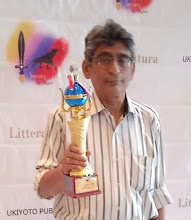As anticipated, the political masters of Pakistan have finally directed its national cricket team to lift the boycott and play India on 15 February, 2026, as scheduled in Colombo . The Masters must've thought the money at stake is too lucrative to continue indulging in such kind of grumpy politics. Of course, they had imposed some pre-conditions that included making the 'handshake' a mandatory protocol, but the ICC looked the other way. So, the PCB takes it as protecting the 'spirit of cricket'. The Indian cricket board , the sponsors, the TV channels and millions of fans who do not necessarily mix patriotism with sports, if it's cricket in particular, must be deliriously ecstatic that all the revenues and hype and excitement shall be there for harvest thr oughout the ICC Men's T20 World Cup-2026 , co-hosted by India and Sri Lanka . Most of the Indians fans must also be ecstatic to have their heroes go on vanquishing the enemy neighbor and humiliating t...
Euthanasia is derived from Greek meaning 'Happy Death' referring to the practice of intentionally ending life to avoid pain and suffering. There are various definitions of euthanasia with various interpretations leading to a complex variety of laws in different countries of the world. The most relevant definition for the present purpose could be 'painless inducement of death'. Patients who are only clinically alive or patients who are terminally ill with no hope of recovery are normally kept on life support system. Now the euthanasia law proposes to give the right of deciding about being on life support system to the related patients or families. Here more complexities crop up in terms of whether the concerned decision is basically 'voluntary euthanasia' or 'involuntary euthanasia'-the former referring to 'assisted suicide' and the latter to 'murder'. Besides, 'passive euthanasia' refers basically to withdrawing life support by medical authorities for patients in a permanent vegetative state and is legal in India and many other countries. However, the problem is in the case of 'active euthanasia' where a 'decision' is required. Active Euthanasia is legal only in the Netherlands, Belgium and Luxembourg while Assisted Suicide is legal only in few other countries. The Supreme Court of India has taken the right step to address this vexed issue.
The Supreme Court today referred the issue of legalizing euthanasia in the country to a five-judge Constitution bench, saying there has been "inconsistent" opinion in its previous verdicts on withdrawing medical support to terminally ill patients. A three-judge bench headed by Chief Justice P Sathasivam said that it is extremely important to have a clear enunciation of law on this issue and referred the matter to a larger Constitution bench.The court said that the Constitution bench will go into all aspects of the issue and take a final decision on framing guidelines.
The Bench also comprising justices Ranjan Gogoi and S K Singh passed the order on a PIL to allow a terminally ill person not to continue with artificial medical support. The Government of India had vociferously opposed the plea terming it as "suicide" which could not be allowed in the country.
With today's direction, the apex court's earlier order, which had rejected the plea for active euthanasia, will also be reexamined by the larger bench.
The PIL filed by NGO "Common Cause" had contended that when a medical expert opines that the person afflicted with terminal disease has reached a point of no return, then s/he should be given the right to refuse being put on life support system as otherwise it would only prolong his agony. The petition was filed in 2008 when the apex court had issued notices to the Union Ministry of Health and Law and sought their response on the issue.
Now the issue is again in the public domain and further considerations or decisions are expected in the coming months.



Comments
Post a Comment
Hi! Welcome! Please comment what you feel! 😊